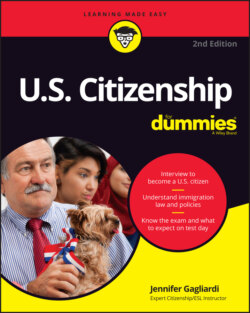Читать книгу U.S. Citizenship For Dummies - Jennifer Gagliardi - Страница 71
MAKING THE BEST OF A BAD SITUATION: THE VIOLENCE AGAINST WOMEN ACT
ОглавлениеIn order for an alien to qualify for family-based immigration, a U.S. citizen or lawful permanent resident must file a I-130 Petition for Alien Relative form with the USCIS on the alien’s behalf. When, or even if, the petition is actually filed is strictly up to the relative petitioner.
Unfortunately, some people use their control of this process to abuse family members by threatening to report them to immigration authorities. As a result, most battered immigrants are afraid to report the abuse or their abusers.
Passed by Congress in 1994, the Violence Against Women Act (VAWA) allows the spouses and children of U.S. citizens or lawful permanent residents to self-petition for permanent legal immigration status. In order to protect the victims from their abusers, provisions of the VAWA allow certain battered immigrants (women or men) to file for immigration relief without their abusive relative’s assistance or even knowledge. Children of these self-petitioners also receive derivative benefits, meaning they can gain lawful permanent residence along with their parents.
Under VAWA, you may be eligible to become a lawful permanent resident (get a green card) if you are the victim of battery or extreme cruelty committed by any of the following:
A U.S. citizen spouse or former spouse
A U.S. citizen parent
A U.S. citizen son or daughter
A lawful permanent resident (LPR) spouse or former spouse
An LPR parent
You may self-petition under VAWA by filing a Petition for Amerasian, Widow(er), or Special Immigrant (Form I-360) without your abusive family member’s knowledge or consent. A person who files a VAWA self-petition is generally known as a VAWA self-petitioner. If your self-petition is approved and you meet other eligibility requirements, you may be eligible to apply to become a lawful permanent resident.
For further information, see USCIS Green Card for VAWA Self-Petitioner at www.uscis.gov/green-card/green-card-eligibility/green-card-for-vawa-self-petitioner.
Remember: If you are a victim of domestic violence, help is available to you through the National Domestic Violence Hotline. Call 800-799-SAFE (7233) or 800-787-3224 (TDD) for information about shelters, mental health care, legal advice, and other types of assistance, including information about self-petitioning for lawful permanent residence. You can also text “START” to 88788 or chat online at www.thehotline.org/get-help/.
